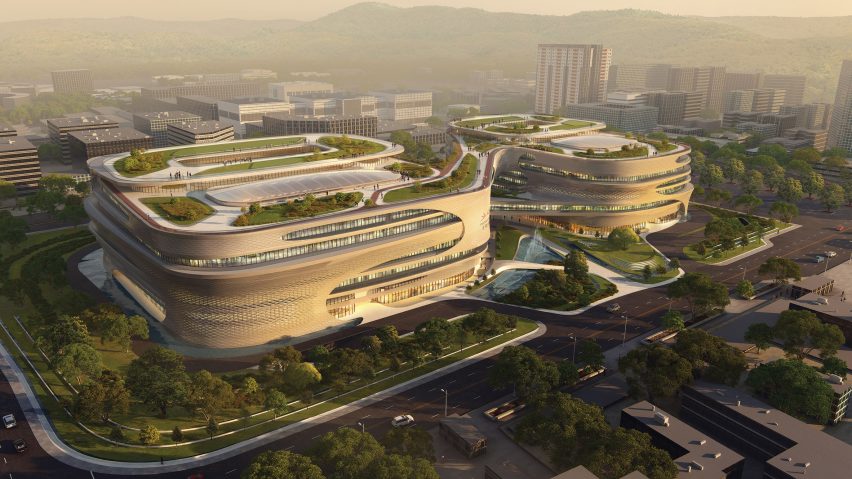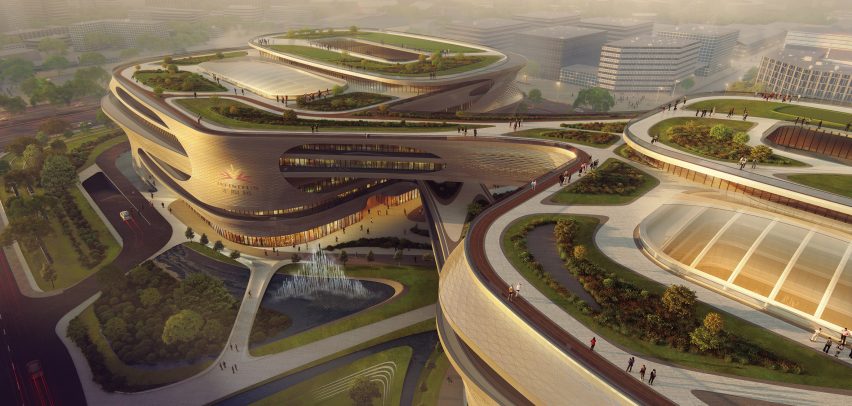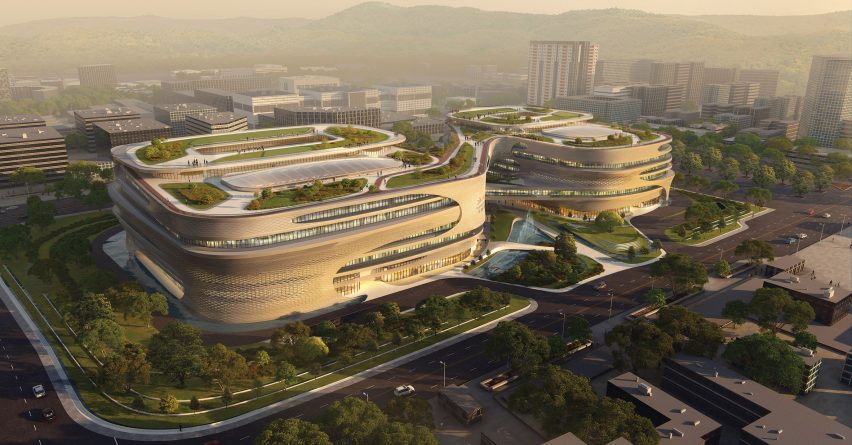
Zaha Hadid Architects reveals plans for Infinitus Plaza in Guangzhou
Zaha Hadid Architects has begun work on a multipurpose complex in Guangzhou, which is modelled on the looping infinity symbol used in mathematics.
The Infinitus Plaza is located in the business district of Baiyun New Town, and will serve as a headquarters for the Infinitus – a health products brand owned by the LKK Health Products Group (LKKHPG). It will host a research centre for Chinese herbal medicine, as well as an exhibition centre and gallery.
The building's design was devised by Zaha Hadid before her death earlier this year, and is based on the looping symbol used to represent infinity in mathematics.
The 167,000 square-meter complex is made up of two eight-storey buildings connected by tree-covered sky bridges.

A number of key facilities for the company will be located inside, including its new global research and development centre for herbal medicines.
Each of the departments within the plaza will be arranged around central atriums and courtyards, while a series of walking and jogging paths – as well herbal gardens – are to be located on the roof.
"Zaha Hadid developed the design of Guangzhou Infinitus Plaza with concepts of integration, connectivity and fluidity," said Satoshi Ohashi, who is director of the studio's China office.
"LKKHPG has a vision for nurturing better health and wellbeing through their work and important community programs," he continued. "Zaha translated this vision to create a new workplace environment and corporate culture that fosters openness and communication."
To maximise the amount of natural light while reducing energy consumption, the building will be fitted with insulated glazing.
Perforated aluminium screens cladding the exterior will provide protection from direct solar heat, as well as enabling rainwater collection.
The screens will also be fitted with sensors that monitor weather, energy use and lighting to help reduce power consumption.

On its expected completion in 2020, the firm believes the Infinitus Plaza will become an anchor to the development of Baiyun District as a centre for China's health industry.
This is the firm's second major project in the city of Guangzhou – the first being the Guangzhou Opera House, which is designed to resemble two pebbles on the bank of the Pearl River.
Despite calls from Chinese president Xi Jinping for an end to the "weird architecture" that has come as a result of China's construction boom, the city is also home to a skyscraper shaped like a giant doughnut by Italian architect Joseph di Pasquale.